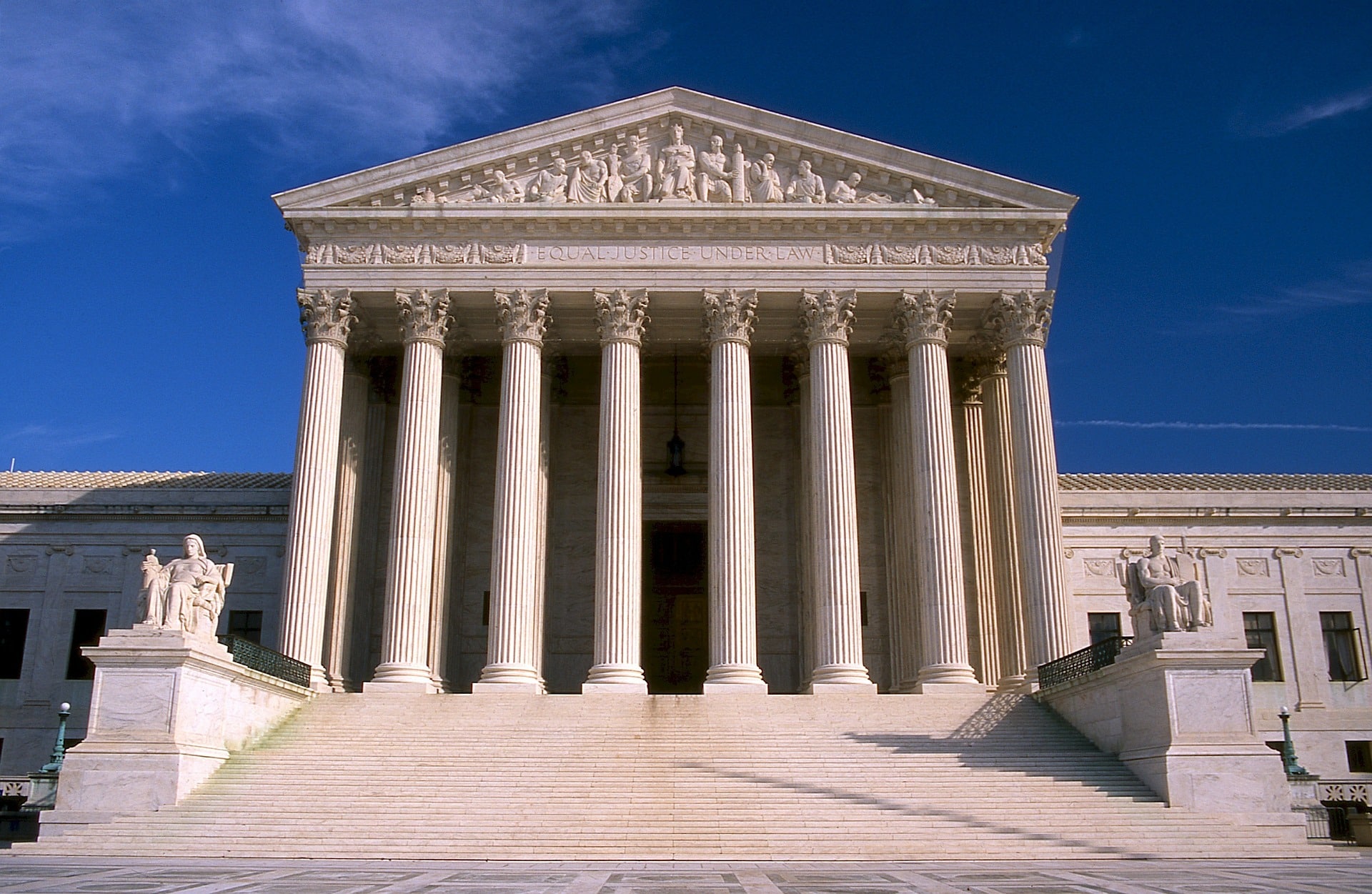
Tuesday Night Truth: Should the Constituion be understood verbatim or contexually?
Connor Boulet, Staff Writer
Front entrance to the Supreme Court Building
November 7 Tuesday Night Talk featured South Carolina Associate Justice John Kittredge detailing his perspective on the way the judiciary should serve its role in interpreting the constitution. In an interview, David Tyner, the political science department chair at North Greenville University, provided context to the event by outlining the two outlooks justices take when reviewing the Constitution: originalist and non-originalist.
Kittredge falls squarely under the originalist perspective. He believes the Constitution, a document considered fundamental law, meaning any law passed by the U.S. legislature, cannot contradict the Constitution, is intended to stand the test of time.
Tyner noted that Alexander Hamilton articulated this perspective in the 78th Federalist Paper, a document that downplayed the power of the judiciary as being consistently subservient to the Constitution. Kittredge believes these laws are not subject to be reinterpreted to a changing social climate, as the principles of the Constitution pave a way for a free, democratic society as literally understood.
For example, he takes the interpretations of the Constitution associated with Roe v Wade, wherein abortion was ultimately rendered a women�s rights issues under the Constitution, as adding new information to the Constitution that was never intended by the Framers.
Kittredge emphasized his belief in the sanctity of the law by recounting a story where he let a transparently guilty drug dealer go free due to a breach in due process. Even if he knew the man was guilty, he believes the law exists as a firm foundation to keep order in a society, and twisting it to meet one�s personal perspective is against the Constitution as the Framers intended it.
Conversely, the non-originalist perspective is most often seen in contemporary politics. This line of thought argues that the Constitution�s primary purpose was to distance the newly formed nation from its prior rulers at that point in time, and the literal text should be interpreted with that knowledge in mind.
They believe the Constitution presumes society would stay much the same, rather than expecting social upheaval as the originalists believe. Thus, the exact wording of the Constitution should be taking with a grain of salt. Non-originalists often point to the great length of time African Americans and women in the United States did not have equal rights with white men, despite the words of the 1st Amendment contradicting such a discrepancy.
Therefore, non-originalists favor a greater amount of power for the judicial power than originalists claim it has, as the judicial branch has the power to consult a more contemporary perspective on the Constitution if they believe an amendment or lack thereof is representative of no more than the times. Such a perspective is how gay marriage, an institution that, not mentioned in the Constitution, would be considered a state�s issue, became a nationally recognized civil right.
Although not a partisan issue, conservatives are often associated with the originalist label, while liberals are grouped with non-originalists. In the midst of a presidency where partisan ties are forged with fire, a re-ignition of the this contested debate is likely to come sooner rather than later.

